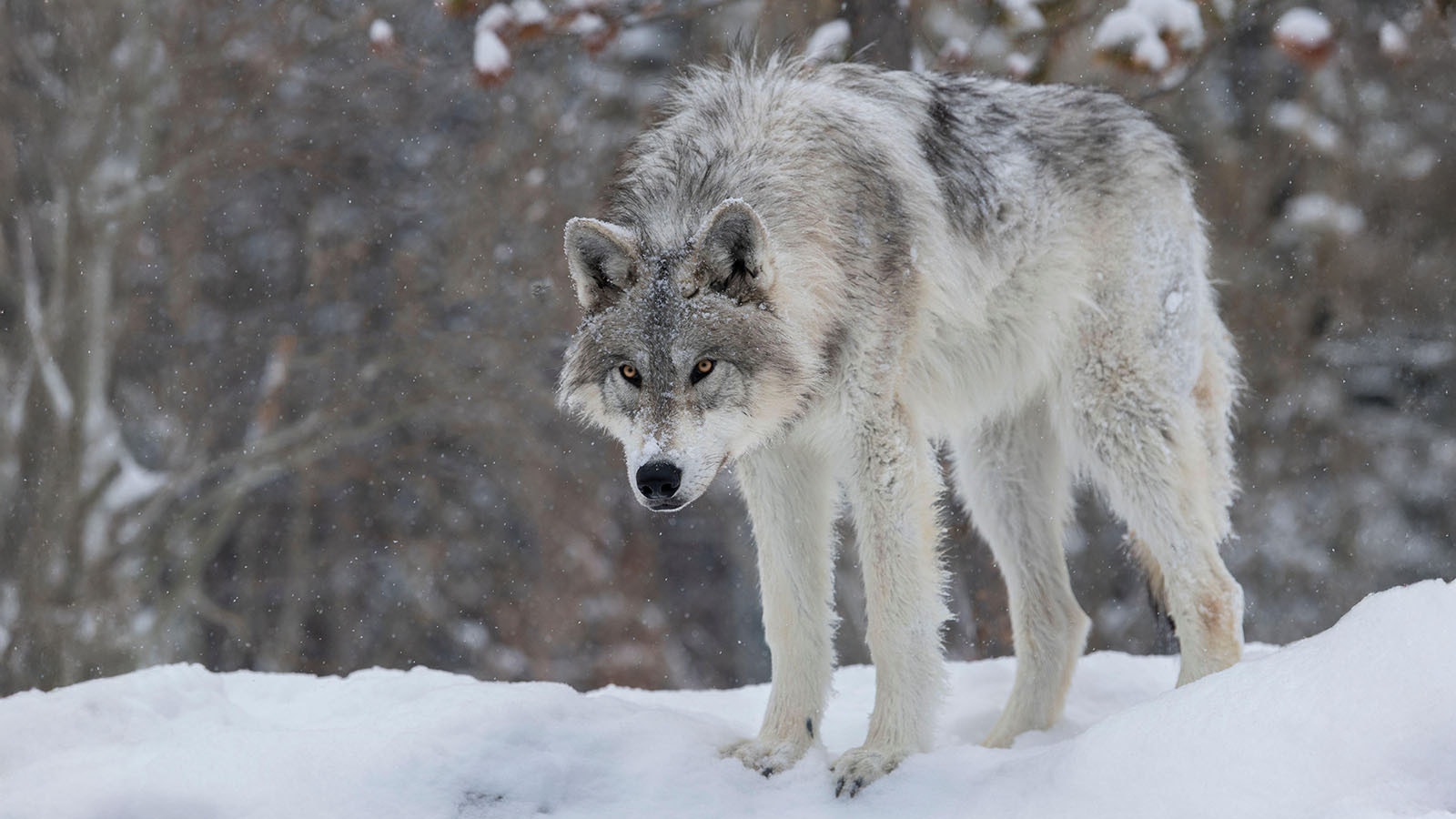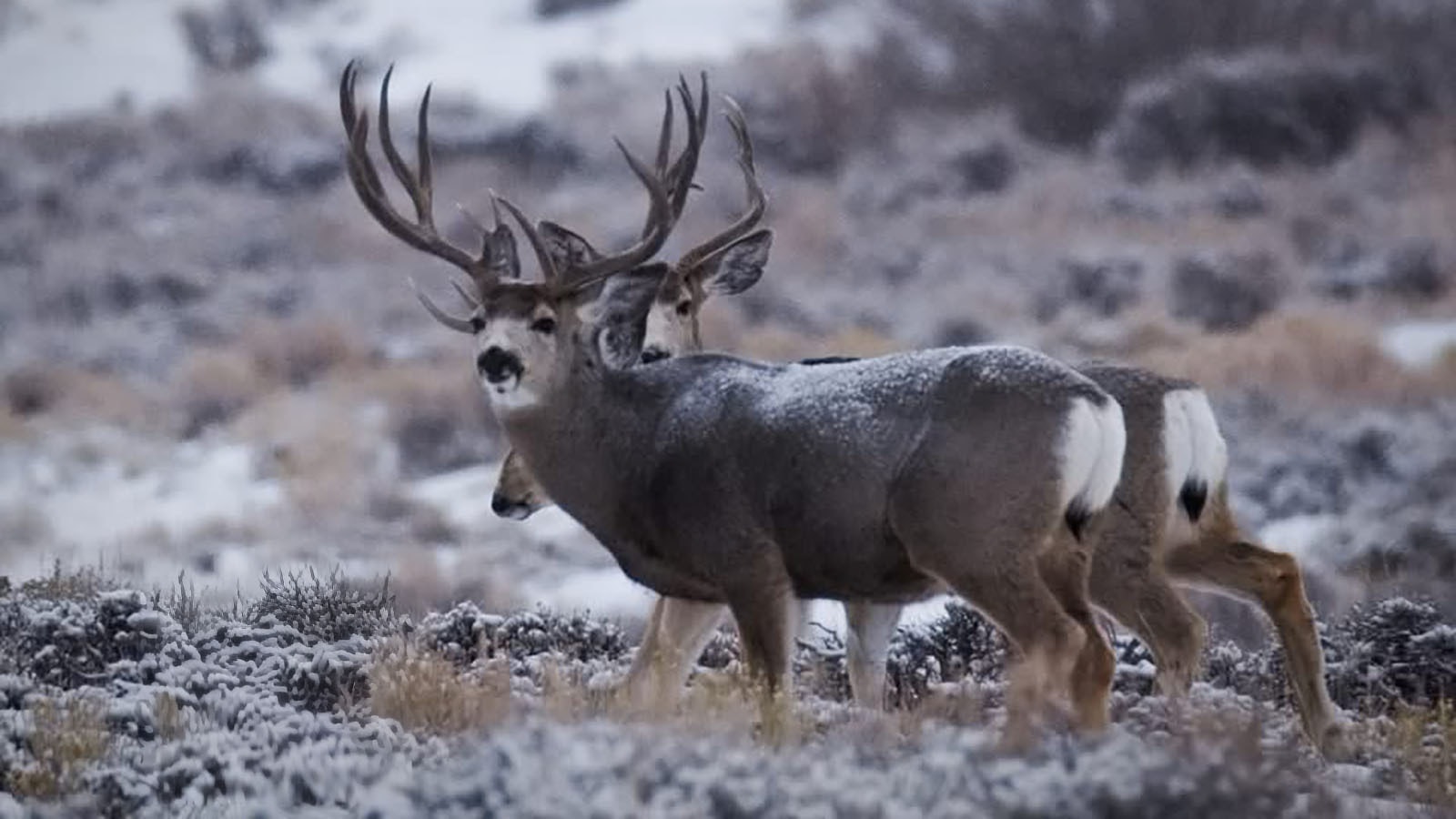A federal judge on Tuesday issued a ruling ordering the U.S. Fish and Wildlife Service to reconsider wolf policy in Wyoming and other states, which could open the door to wolves being relisted as an endangered species.
The Fish and Wildlife Service (FWS) broke the law last year when it denied a petition from a coalition of environmental and animal welfare groups calling for wolves to be re-listed as an endangered species, according to a ruling from Judge Donald Molloy in U.S. District Court for the District of Montana in Missoula.
A coalition of environmental and animal welfare groups petitioned the FWS in 2021 to place wolves back under federal protection, claiming that wolf management policies in Wyoming and other states were too heavy-handed.
The FWS rejected that petition in February 2024, so the groups filed the lawsuit in the U.S. District Court, leading to Molloy’s ruling on Tuesday.
Molloy ordered the FWS to reconsider whether to grant wolves endangered species protection in Wyoming — as well as Idaho, Montana and parts of Washington, Oregon and Utah.
Molloy also concluded that “the agency (FWS) unlawfully disregarded the potential importance of the wolf’s fledgling return to Colorado, through natural dispersal and historic reintroductions, when the agency denied the petition,” according to a statement issued Tuesday by the plaintiffs in the lawsuit.
Colorado’s wolf reintroduction program began in December 2023 with the release of 10 wolves transported from Oregon. Another 15 wolves, from British Columbia, Canada, were released in January.
Some have praised the wolf reintroduction program as a success, with at least four litters of wolf pups born in Colorado this spring.
It has had its share of critics, particularly Colorado ranchers who say they’re fed up with wolves attacking their livestock.
Relisting Would Reverse Wyoming Wolf Policy
In Wyoming, Montana and Idaho, wolves were removed from federal protection in 2011 and management was handed over to the states. It’s legal to hunt and trap wolves in all three states.
In roughly 85 percent of Wyoming, wolves are listed as a predatory animal, meaning they can be killed on sight at any time, with no bag limits or hunting license required.
If endangered species protection was reinstated for wolves, the states would lose direct management of them. Hunting and trapping wolves would no longer be allowed.
Molloy’s order came just days after former Wyoming Game and Fish Department director Brian Nesvik was confirmed by the U.S. Senate as the new FWS chief.
Relisting Wolves ‘A Bad Idea’
Backcountry outfitter Rick Roach of Cody told Cowboy State Daily that the idea of relisting wolves doesn’t make sense to him.
“I believe that relisting wolves is a bad idea,” he said
Relisting wolves would take away “management tools” that states use to strike a balance between conserving wolves and protecting livestock and big game herds, he added.
Roach has guided numerous people into Wyoming’s wolf country, including a wolf researcher.
Wolf management inevitably involves some lethal control of the predators, he said.
“If you want to keep some wolves, you’ve got to kill some wolves,” Roach said.
Game and Fish has a proven record of managing wolves at a healthy population level, so there’s no reason to reverse course and take wolf management away from the agency, Roach said.
“They have the skills, the knowledge and the means to manage wolves properly,” he said.
‘No Guardrails’
Wolf advocates have long claimed that the states are too eager to kill wolves.
Recently, Montana’s move to kill up to half of that state’s wolves in upcoming hunting seasons drew criticism.
Wayne Pacelle, president of Animal Wellness Action and the Center for a Humane Economy, told Cowboy State Daily that the states’ wolf policies are based in “limitless killing.”
He said he was prompted to join the lawsuit against FWS by the reported capture, torture and killing of a wolf by Daniel resident Cody Roberts in February 2024.
According to accounts, Roberts captured the wolf by running it down with a snowmobile.
“The average hunter, or non-hunter, thinks that limitless killing of wolves and crushing them with snowmobiles is out of bounds,” he said.
The states have shown time and again that there are “no guardrails” in their wolf management policies, Pacelle said.
In a separate legal matter, a grand jury convened in Sublette County to determine whether to indict Roberts in connection with the wolf’s killing.
After the 2024 incident, Game and Fish cited Roberts for unlawful possession of a warm-blooded animal, and he forfeited a $250 bond, according to court records.
Mark Heinz can be reached at mark@cowboystatedaily.com.





